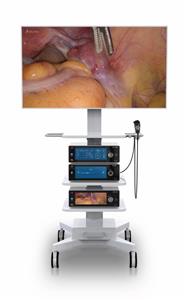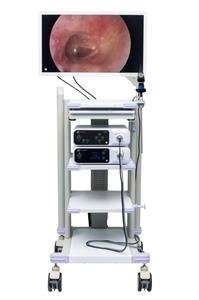The effect of ureteral stent implantation under cystoscope in the treatment of pyelonephrosis
analyze the efficacy and safety of cystoscopic ureteral stent implantation in the treatment of pyelonephrosis. Methods A total of 80 patients with pyelonephrosis who were treated in the branch of Tianjin Third Central Hospital from February 2018 to February 2020 were selected and divided into a reference group and a research group according to the random number table method, with 40 cases in each group . The patients in the reference group were treated with nephrostomy, and the patients in the study group were treated with cystoscopic ureteral stent implantation. The therapeutic efficacy and postoperative adverse events of the two operations were compared. Results The surgical success rate and symptom relief rate of the study group were 92.50% and 85.00%, respectively, compared with 90.00% and 82.50% of the reference group, there was no significant difference (χ2=0.931, 9.230, P>0.05). The incidence of postoperative adverse events in the study group was 12.50%, which was lower than 27.50% in the reference group, and the difference was statistically significant (χ2=7.031, P<0.05). Conclusion The success rate of ureteral stent implantation under cystoscope is high after the occurrence of empyema, which can help to relieve clinical symptoms quickly. At the same time, the risk of postoperative adverse events is low and the safety is high, which is worthy of clinical application.




